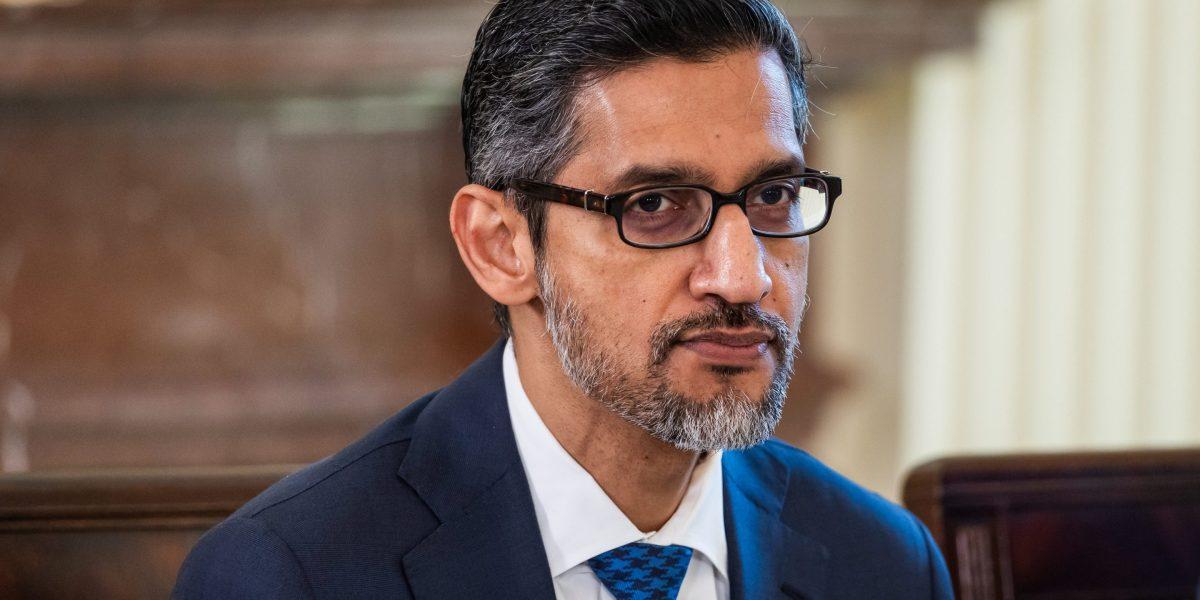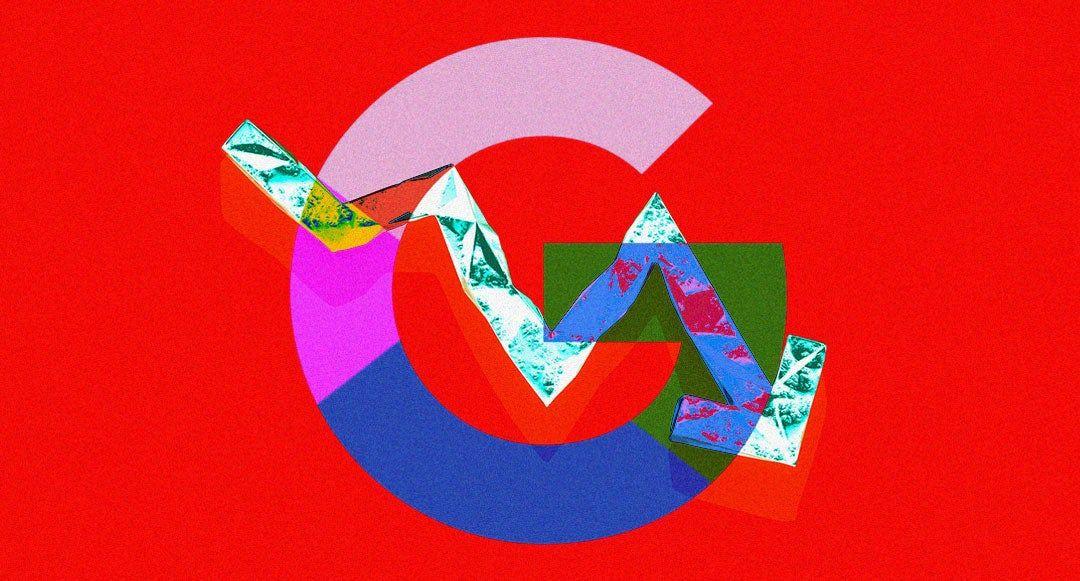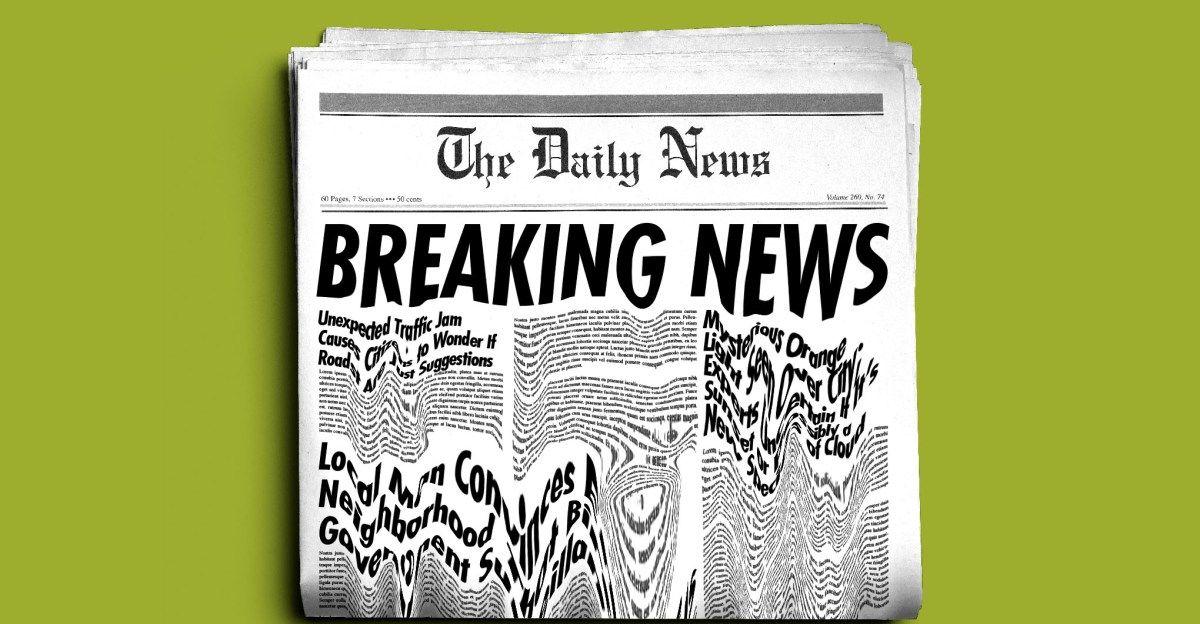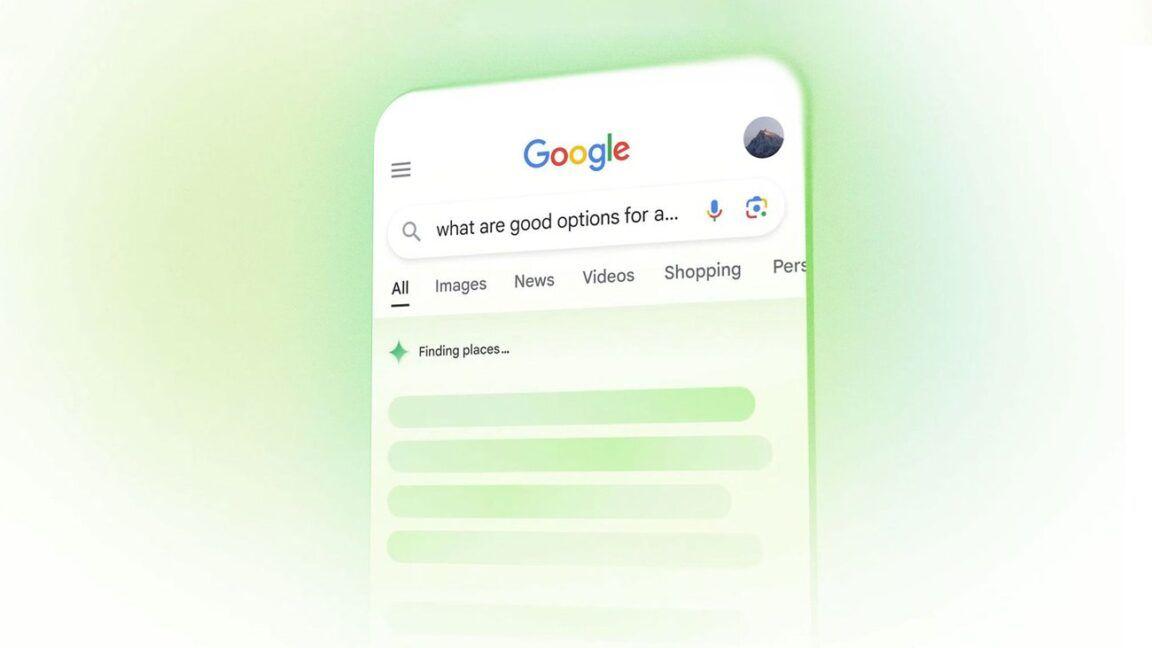Google's Contradictory Stance: Admitting 'Rapid Decline' of Open Web Amid AI Controversy
6 Sources
6 Sources
[1]
In court filing, Google concedes the open web is in "rapid decline"
Is the web thriving or faltering? Google has an unexpected take in a new legal filing. Google is heading back to court soon in hopes of convincing a judge that it should not have to split up its ad business. The company lost its adtech antitrust case earlier this year, and now it's up to the court to decide on remedies for the illegal conduct. In its response to the DOJ's requested remedies, Google made a startling claim: "The fact is that today, the open web is already in rapid decline." Google says that forcing it to divest its AdX marketplace would hasten the demise of wide swaths of the web that are dependent on advertising revenue. This is one of several reasons Google asks the court to deny the government's request. The DOJ also tried to force a divestment of Chrome in the search antitrust trial, but the judge in that case declined to order that in the remedies. Google's advertising business has turned it into an unrivaled Internet juggernaut. Google increasingly is the Internet -- websites have no choice but to adhere to Google's standards for search and ads because there's no substantial competition. The court in this case ruled that in tying its display ad services with the AdX marketplace, Google suppressed the adoption of rival technologies, and this gave it an opportunity to preference its own services in ad auctions. As users become increasingly frustrated with AI search products, Google often claims people actually love AI search and are sending as many clicks to the web as ever. Now that its golden goose is on the line, the open web is suddenly "in rapid decline." It's right there on page five of the company's September 5 filing, as spotted by Search Engine Roundtable. A recent analysis of AI Overviews web traffic from the Pew Research Center suggests AI Overviews results in a substantial drop in web traffic. Google executives have disputed this, claiming the search clicks are "relatively stable," according to search head Liz Reid. It feels like Google is trying to have it both ways.
[2]
Google admits the open web is in 'rapid decline'
For months, Google has maintained that the web is "thriving," AI isn't tanking traffic, and its search engine is sending people to a wider variety of websites than ever. But in a court filing from last week, Google admitted that "the open web is already in rapid decline," as spotted earlier by Jason Kint and reported on by Search Engine Roundtable. Google submitted the filing ahead of another trial that will determine how it will address its monopoly in the advertising technology business. The US Department of Justice recommends that Google break up its advertising business, but the company argues in the filing that this isn't ideal because it would "only accelerate" the decline of the open web, "harming publishers who currently rely on open-web display advertising revenue." The statement sharply contrasts Google's recent narrative about the health of search on the web. Google has a clear incentive to make itself appear weaker or less monopolistic in the courtroom, but its admission reflects a reality many publishers are going through. Several digital publishers and independent website owners have reported experiencing a decline in traffic following changes to Google Search's algorithm and the rise of AI chatbots. When asked about these concerns during an episode of Decoder in May, Google CEO Sundar Pichai said the company is "definitely sending traffic to a wider range of sources and publishers" following the rollout of AI search tools. Nick Fox, Google's senior vice president of knowledge, similarly defended Google against claims that changes to search are impacting web traffic. "From our point of view, the web is thriving," Fox said on an episode of the AI Inside podcast. In the wake of a report from Pew Research, which said people are "less likely" to click on links when presented with Google's AI Overview, Google Search head Liz Reid claimed that click volume has remained "relatively stable" when compared to the same time last year, adding that Google continues to "send billions of clicks to websites every day."
[3]
Google says 'the open web is in rapid decline' weeks after arguing in favor of AI
It's been clear for some time that the "open web" as we've known it for years is in a tough spot, but Google has argued the opposite. In a court statement, though, Google's own case argues that the open web is "in rapid decline." Barely a month ago, Google argued that its AI products are not to blame for the widespread traffic declines, saying that total click volume "has been relatively stable" and that "average click quality has increased." That was in response to a study that showed web traffic was falling with patterns that suggested AI was to blame. Google called the study's methodology "flawed." It's not the first time Google has stood up to argue in favor of the health of the web today, but a statement from an ongoing court case admits that "the open web is in rapid decline," somewhat contradicting the sentiment of the company's prior statements. The full quote (via SE Roundtable) reads: The fact is that today, the open web is already in rapid decline and Plaintiffs' divestiture proposal would only accelerate that decline, harming publishers who currently rely on open-web display advertising revenue. As the law makes clear, the last thing a court should do is intervene to reshape an industry that is already in the midst of being reshaped by market forces. The argument here is that the remedies being proposed by the court in regards to Google's grasp on the online advertising market would do more harm than good. It suggests that the industry is already going through a significant shift without interference by the DOJ, and that changes enforced by the court could harm "publishers who currently rely on open-web display advertising revenue" which Google provides. As The Verge points out, this argument is directly contrary to a statement from Google's Nick Fox, who said in June that "the web is thriving." Google, of course, plays a pivotal role in the open web, with the company's search engine being not just a useful tool, but a fundamental part of life on the internet for years. Google continues to argue in favor of AI and that it "believe[s] that Search's value exchange with the web remains strong," but it's also clear that something is amiss, and now even Google has acknowledged that. What do you think of the company's latest statement?
[4]
Google got caught saying the open web is in 'rapid decline' and publishers are up in arms about its 'AI content theft' | Fortune
Google is under intense scrutiny for making contradictory statements about the health of the open web, even as publishers and industry critics are seeing issues with how it siphons content for its AI-powered services, arguably accelerating the same process. In a recent legal filing, Google admitted that "the open web is already in rapid decline" -- a stance sharply at odds with its public reassurances the web is thriving at almost exactly the same time. For years, Google has positioned itself as a champion of the open web, regularly touting the vitality and robustness of the digital ecosystem. However, in a legal battle over its advertising dominance, the company recently claimed the open web's decline is so severe that breaking up its ad business would only accelerate damage, harming publishers who rely on open-web display ad revenue. A few months earlier, top Google executives -- including Search VP Nick Fox -- had publicly argued the opposite on the AI Inside podcast, insisting that "from our point of view, the web is thriving" and that Google products aren't to blame for falling web traffic. Overall search volumes appear to be up, which is one reason why Google revenues have continued to climb. Still, there is some evidence click-throughs per search are declining. Following widespread criticism, Google scrambled to clarify its statements, with a spokesperson telling Business Insider the legal filing was referring to "open-web display advertising" rather than the open web as a whole. Meanwhile, publishers are increasingly vocal about what they see as Google's role in the rapid decline of the open web: It's a major content thief. Publishers' frustrations are boiling over. In August, the CEO of WalletHub, a major personal finance site, blocked 40,000 pages from Google's indexing, accusing the tech giant of allowing AI-powered plagiarism and content theft. CEO Odysseas Papadimitriou charged Google has abandoned its founding mission of organizing information and instead turned to stealing it, urging other outlets to fight back by limiting Google's access to their intellectual property. "Imagine you're a restaurant owner, and you get approached by the mafia," Papadimitriou said in an emailed statement to The Desk. This outcry is not unique. In recent months, U.S. publishers -- through organizations like the News/Media Alliance -- have blasted Google's AI Mode for "content theft," arguing that AI-generated answers are siphoning both traffic and revenue from news sources. These publishers argue that users often get all the information they need directly from Google's AI summaries, bypassing original content creators. Speaking at Fortune's Brainstorm Tech conference on Wednesday, a media heavy hitter waded into the fray People Inc. CEO Neil Vogel said Google has so far refused to pay publishers for the content they create, while other big AI firms are ponying up, even if some believe they're getting off too cheaply. "Some AI shops are good actors. OpenAI is a good guy," said Vogel. "The worst guy is Google." Commenting on Anthropic's historic $1.5 billion settlement with book publishers, Vogel added Google is a "bad actor." (Even that settlement is subject to criticism, as U.S. District Court Judge William Alsup said he may have to hold his nose to approve it.) Vogel was speaking during an on-stage panel discussion about the future of digital media in the age of AI. Cloudflare CEO Matthew Prince, who was on the same panel, said AI firms' "answer engines" are making it difficult for other websites to drive traffic, and it's a change from Google's previous status as a "great patron" to the Internet, when it ingested web-page content and linked out to relevant pages in response to search queries. Google maintains its AI-powered search tools actually support publishers by creating "new opportunities for content and businesses to be discovered," but mounting data shows the opposite: Traffic to publishers is falling sharply, and the median zero-click rate has hit as high as 80% when AI Overviews are presented. Critics allege that Google's dominance not only undermines traditional publishing revenues but mutes the diversity of online voices, accelerating the decline of the open, accessible web, just as Google admitted behind closed doors, in court. Google did not immediately respond to Fortune's request for comment.
[5]
Google Says the Open Web Is Now in "Rapid Decline"
In a major change in tune, Google has admitted that the "open web is already in rapid decline" -- despite being adamant for months that the "web is thriving." As first spotted by The Verge, the tech giant attempted to dissuade regulators from breaking up its advertising tech business, arguing that doing so would harm publishers who rely on advertising revenue. Google argued that splitting up its ad business would "only accelerate" the open web's disintegration ahead of an antitrust trial in a DC court. It's a peculiar admission, especially considering it's in Google's best interest to downplay the sizable role it plays in the traditional ecosystem of the web. The company has been caught up in several antitrust lawsuits, with regulators finding that it was behaving anti-competitively, using its influence to assume an unprecedented level of control over the open web. Earlier this year, the US Department of Justice won a separate antitrust case against Google, finding that the company had been operating a monopoly in the adtech business. In August 2024, a judge also ruled that Google had illegally exploited its dominance on the web to stifle innovation and squash competition. It's worth noting that the search giant is pushing back; a spokesperson told the Verge that the "rapid decline" statement was "cherry-picked," misrepresenting the filing. "We are pointing out the obvious: that investments in non-open web display advertising like connected TV and retail media are growing at the expense of those in open web display advertising," the spokesperson said. Cherrypicked or not, Google's choice of words tells a damning story about the situation countless digital publishers find themselves in. Many of them have become highly susceptible to changes in the company's algorithms, seeing traffic, and therefore display ad revenues plummet, practically overnight, earlier this year, as Google makes changes behind the scenes. Adding insult to injury is Google's embrace of AI, putting its error-laden AI Overviews feature on top of search results to disincentivize users from clicking on links, for instance. Research has shown that Google users are far less likely to visit actual sites when presented with AI-generated summaries. Google CEO Sundar Pichai attempted to argue the company has played no part in the major drop in internet traffic, telling the Verge earlier this year that it's "definitely sending traffic to a wider range of sources and publishers" thanks to its AI search tools. Besides Google accelerating the demise of ad revenue-reliant publishers, users have also found that the quality of Google search results has significantly deteriorated as AI slop continues to flood the open web, often exploiting the company's algorithms to float to the top of search rankings. In short, Google is stuck between a rock and a hard place: it played a mammoth role in the evolution of the modern internet -- but with AI now remaking that landscape, it finds its search results flooded by low-quality AI content at the same time that it's forced to integrate AI in ways that feel embarrassing for an entity of its stature.
[6]
Despite Initially Claiming The Web Is Thriving, Google Admits Open Web Is In Rapid Decline Amid AI And Ad Changes
There has been buzz going around about the decline in website traffic amidst the introduction of AI overviews, and many major businesses have been suffering because of it. Google, however, in the past kept denying any decline and suggested that it was a mere shift in preferences, where some businesses thrived while others suffered, and the major way to overcome it would be to adapt to the changing requirements and become more agile. In a surprising turn of events, Google has gone back on its earlier statements and, for the first time, admitted in a recent court filing that the open web is, in fact, in decline. Google, despite denying in the past any issues with the web amid the rise of AI, which is leading to a reduction in web traffic, has now contradicted its own earlier claims by acknowledging in a court filing that the open web is in rapid decline. The tech giant made this statement when defending itself against the U.S. Department of Justice in its attempts to divest the company, calling the breakup likely to cause further damage to publishers who depend on open-web display ads for profits. Google has attributed the decline to a number of factors, including the expansion of retail media, the growth of connected TV, and the increasing impact of AI - something that the community and researchers have been speculating for quite some time as a major contributing factor. The changing digital advertising landscape has put pressure on many publishers, who tend to rely on traditional models to generate revenue. This situation prompts concerns not only about the ongoing scenario but also about what lies ahead for the open web and how tech companies would play a major role in defining its direction. While the trial is still ongoing, its outcome would not only be significant for Google but also have a ripple effect on the overall online ecosystem and could shift digital advertising strategies. While originally Google claimed that, from their perspective, the web is thriving, its recent admission of the open web's decline is indeed alarming. Even if this statement was made to defend its position, the overall industry might have to adapt to the ongoing changes in order to remain competitive in the online environment.
Share
Share
Copy Link
Google's recent court filing acknowledges the 'rapid decline' of the open web, contradicting earlier statements. This admission comes amidst ongoing antitrust cases and growing concerns about AI's impact on web traffic and content creation.
Google's Contradictory Stance on the Open Web
In a surprising turn of events, Google has admitted in a recent court filing that 'the open web is already in rapid decline'
1
. This statement stands in stark contrast to the company's previous assertions that the web is thriving, raising questions about Google's true perspective on the state of the internet.
Source: Wccftech
The Legal Context
The admission came as part of Google's response to the Department of Justice's (DOJ) requested remedies in an antitrust case concerning the company's advertising technology business
1
. Google argues that forcing it to divest its AdX marketplace would accelerate the decline of websites dependent on advertising revenue2
.Contradictory Statements
This new stance sharply contradicts recent statements made by Google executives. Just weeks earlier, Nick Fox, Google's senior vice president of knowledge, claimed on the AI Inside podcast that 'the web is thriving'
2
. Similarly, Google CEO Sundar Pichai had stated that the company was 'definitely sending traffic to a wider range of sources and publishers' following the rollout of AI search tools3
.
Source: Fortune
AI's Impact on Web Traffic
The controversy surrounding Google's statements is further fueled by growing concerns about the impact of AI-powered search tools on web traffic. A Pew Research Center analysis suggests that AI Overviews result in a substantial drop in web traffic
1
. Despite Google's claims of stable click volumes, publishers and independent website owners have reported experiencing declines in traffic following changes to Google Search's algorithm and the rise of AI chatbots2
.Related Stories
Publishers' Concerns and Accusations
The situation has led to mounting frustrations among publishers. Some, like WalletHub CEO Odysseas Papadimitriou, have taken drastic measures by blocking Google from indexing their content, accusing the tech giant of allowing AI-powered plagiarism and content theft .
Neil Vogel, CEO of People Inc., criticized Google at Fortune's Brainstorm Tech conference, stating that the company has refused to pay publishers for content while other AI firms are making efforts to compensate content creators .
The Broader Implications
Google's admission of the open web's decline, coupled with its dominant role in shaping the internet landscape, raises significant questions about the future of digital publishing and content creation. Critics argue that Google's AI-powered search tools are not only undermining traditional publishing revenues but also muting the diversity of online voices .

Source: Futurism
As the debate continues, the tech industry and regulators alike are grappling with the challenge of balancing technological innovation with the preservation of a diverse and thriving open web ecosystem
5
.References
Summarized by
Navi
[2]
Related Stories
Google Defends AI Search Features, Claiming Stable Web Traffic and Increased Click Quality
07 Aug 2025•Technology

Google's AI Search Features Threaten Publishers' Traffic and Revenue
10 Jun 2025•Technology

News Publishers Slam Google's AI Mode as 'Theft', Raising Concerns Over Content Usage and Revenue Loss
22 May 2025•Technology

Recent Highlights
1
ByteDance's Seedance 2.0 AI video generator triggers copyright infringement battle with Hollywood
Policy and Regulation

2
Demis Hassabis predicts AGI in 5-8 years, sees new golden era transforming medicine and science
Technology

3
Nvidia and Meta forge massive chip deal as computing power demands reshape AI infrastructure
Technology





